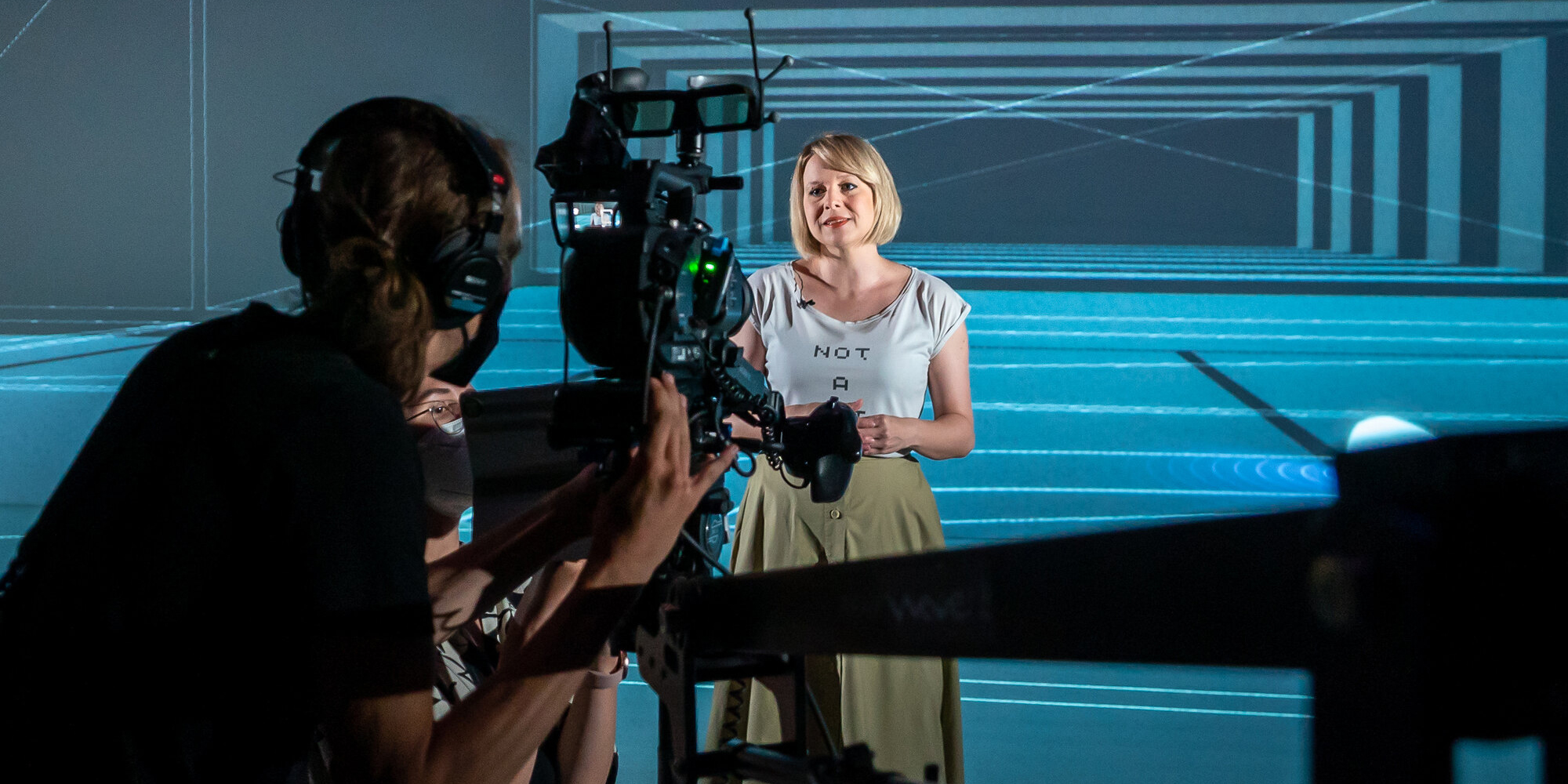Press release as PDF
photo album Best of Ars Electronica Home Delivery
Website Ars Electronica Home Delivery
Ars Electronica Home Delivery on Youtube
Ars Electronica Blog
(Linz, 4.7.2021) From a robotic seal used in the therapy of Alzheimer’s patients to self-driving cars that communicate with pedestrians and a fascinating project that examines the impact of our actions on the world’s oceans. Ars Electronica Home Delivery offers a range of new programmes again this week and delivers plenty of other fascinating clips – to watch right in your living room, kitchen, office, children’s room or classroom.
Ars Electronica Futurelab 25th Anniversary Series / Episode 4 – Humanity and Robotinity / TUE 6.7.2021 / 6:00 p.m.
In the fourth episode of the Anniversary Series, robot psychologist Martina Mara of the JKU Institute of Technology and Hideaki Ogawa, Director of the Ars Electronica Futurelab, shed light on the ambivalent relationship between man and machine. Viewers get to know the therapy robot Paro and gain insights into a research project by Mercedes Benz and the Ars Electronica Futurelab that is dedicated to communication between humans and self-driving cars. Episode 4 also provides insights into a joint project by Ars Electronica Futurelab and the Japanese telecommunications company NTT, in which ground robots are being used to try to develop a completely new audience experience at sporting events.
Cooperative Aesthetics: Tower
SAT 10.7.2021 / 3:30 p.m.
Students of Time-Based and Interactive Media Art at the Linz University of the Arts made use of the infrastructure of Deep Space 8K with its 16 by 9 metre wall & floor projections and laser tracking and developed various projects which they are now presenting to the audience of Ars Electronica Home Delivery under the motto Cooperative Aesthetics. In Gerhard Funk’s installation “Towers”, the participants build a tower by walking in a circle, which generates sounds depending on its shape when completed.
User Manual for Digital Humanists / Epidsode 4
MON 5.7.2021 / 3 p.m.
With the initiative of the “European Platform for Digital Humanism”, Ars Electronica and its partners* from research, industry and culture are participating in an urgent reassessment of our relationship to the technologies we create and how we use them. Episode 4 of the series explores how artists and designers focus on social and human needs in innovation processes. This time, Veronika Liebl, Director of European Cooperation at Ars Electronica, and Kristina Maurer, Head of European Projects Festival/Prix/Exhibitions at Ars Electronica, are joined by Ann-Sofi Rönnskog and John Palmesino of Territorial Agency, who won the STARTS Prize 2021 for their project “Oceans in Transformation”, which explores the impact of our actions on the oceans.
Ars Electronica Home Delivery
“Ars Electronica Home Delivery” is a weekly programme that includes Guided Tours of Ars Electronica exhibitions, excursions to Ars Electronica Labs, visits to the Machine Learning Studio, concerts with real-time visualisations, Deep Space LIVE sessions, workshops with Engineers and Talks with Artists and Scientists from around the world, as well as offerings for schools, universities and companies. “Ars Electronica Home Delivery” aims to make the artistic and scientific examination of the future accessible to as broad an audience as possible.
Photo:
Inside Futurelab: 25th Anniversary Series – Episode 4 – Humanity and Robotinity / Photo: Birgit Cakir / Printversion
Photo:
Inside Futurelab: 25th Anniversary Series – Episode 4 – Humanity and Robotinity / Photo: Ars Electronica – Robert Bauernhansl / Printversion
Photo:
Oceans in Transformation / Territorial Agency – John Palmesino and Ann-Sofi Rönnskog (INT) / Photo: Territorial Agency / Printversion
